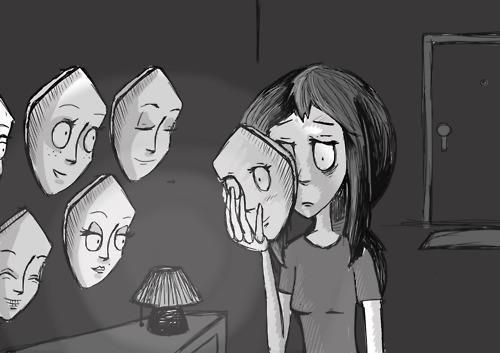Here we already established the truth about depression. Depression is very real and should not be waved aside. On this side of the continent, this state of emotion is often overlooked. Depression should also be given adequate medical attention as any other illness or disease. Looking at the recent trend in our society today, depression is on the rise. According to the World Health Organization (WHO), depression has become the foremost reason for disability in the world. It is no news that majority do not know how to identify a depressive state- this is an exposé on the types, diagnosis and treatments of Depression.
Basically, there are two types of depression
Unipolar and Bipolar depression
Unipolar depression otherwise known as Major depressive disorder is the sad lowly sorrowful feeling. Here, all of a sudden the person starts feeling left out and alone. You often hear them say –“everyone hates me, nobody likes me- why is X friends with everyone and no one wants to be my friend”
Bipolar depression on the other hand, is borne from a high exaggerated and intense feeling. Sometimes the depressed is aggravated and heightened. People with bipolar depression get all so angry and carefree-they throw all caution to the wind and seem not to mind the consequences of their actions. They could also be destructive.
Symptoms of Depression
- Discontinued interest in things one once considered interesting
- Loss of appetite: weight loss
- Insomnia
- Constant worrying & over-thinking
- Feeling worthless
- Having no sense of purpose
- Thoughts of death or suicide
These symptoms must have been persistent two weeks or more before diagnosis as Depression.
Research has shown that Personality traits and Environmental background are the major root causes of Depression. A person with a low self esteem, constantly faulting and thinking highly of others above himself/herself is prone to depression. Also, a background of struggles, hardship, abuse, violence, neglect etc tends to make one vulnerable to depression.
Treatments For Depression
Medication
Drugs/Pills such as Sertraline (Zofolt), Fluoxetine and Mirtazapine are prescribed for severe cases of depression. Doctors usually prescribe either of these antidepressants to suppress and modify moods. Total improvement and benefits of the use of antidepressants may not be noticeable until after a few months, If not there may be a need to alter or substitute the pills. To avoid a relapse, a continued use of the dosage is advised.
Counselling
Here, the Psychotheraphy and Cognitive Behavioural theraphy are counselling methods to help deal with depression. Psychotheraphy also called Talk theraphy is recommended for cases of Unipolar depression. In a psychotheraphy, a psychologist talks the patient through the depressive phase spotting the source and how to help out of the phase.
Cognitive behavioral therapy (CBT) is an effective way of treating depression. This therapy looks at the current state of the depressed and ways to pull him/her out. It identifies distorted thoughts and then creates a change in behaviour and thinking.
For a more productive result, both therapies can include people with similar health challenge to ensure a flexible communication -people tend to loosen up when they know others are also going through the same challenge.
Exercise
Physical exercise is one major key to managing Unipolar depression. The aftermath of a session of exercise has an effect on the symptoms of depression. It equals the treatment medications and therapies. Usually those who are physically fit and willing to go through a session of exercise would have had enough treatment to gone out of a depressive phase.


Leave a Reply